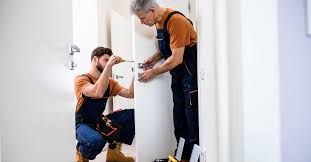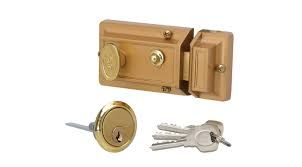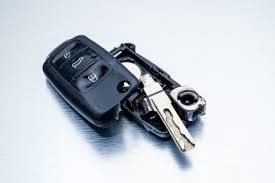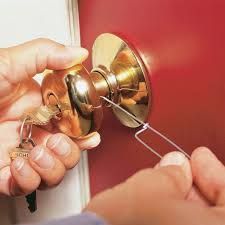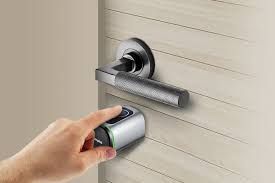The Ultimate Guide to Finding a Reliable Locksmith in Phoenix, Arizona
Are you locked out of your home or in need of assistance with your locks in Phoenix, Arizona? Finding a reliable locksmith is paramount to ensure that your security needs are met with professionalism and expertise. With so many options available, it can be overwhelming to determine which locksmith to trust. Fear not! In this comprehensive guide, we will walk you through the essential steps to finding a reliable locksmith in Phoenix, Arizona. Plus, we’ll introduce you to a trusted locksmith company, Brothers Locksmith, that checks all the boxes. Let’s dive in!
1. Ask for Recommendations
Start your search for a reliable locksmith by asking for recommendations from friends, family, and neighbors who have recently used locksmith services in Phoenix, Arizona. Personal referrals provide valuable insights into the quality of service and customer experience. Take note of the names that come up repeatedly, as they may be worth considering.
2. Research Online
Once you have a list of potential locksmiths, conduct thorough online research. Visit their websites, read customer reviews on trusted platforms like Google, Yelp, and Angie’s List, and check their social media presence. Look for a locksmith with a substantial number of positive reviews, a professional website, and a strong online reputation.
3. Verify Credentials and Licensing
When it comes to locksmiths, verifying their credentials is crucial. Ensure that the locksmith you choose is licensed and insured. Licensing ensures that they have met the necessary qualifications and adhere to industry standards. It’s a sign of professionalism and competence. You can typically find information about their licensing on their website or by contacting relevant local authorities.
4. Check for Local Presence
Choosing a local locksmith in Phoenix, Arizona, offers several advantages. They are familiar with the area, understand the unique security challenges, and can provide prompt service. Look for a locksmith with a physical address and a local phone number to ensure their legitimacy and accessibility. A local presence also means they can respond quickly to your lock-related emergencies.
5. Inquire About Services Offered
Consider the specific locksmith services you require. Do you need assistance with lock installations, repairs, or emergency lockouts? It’s important to choose a locksmith who offers a comprehensive range of services to meet your needs. This ensures that you can rely on a single trusted provider for all your locksmith requirements, both now and in the future.
6. Assess Availability and Response Time
Emergencies can strike at any time, day or night. A reliable locksmith should offer 24/7 availability to handle lock-related emergencies promptly. Inquire about their response time and ensure that they prioritize quick assistance to minimize disruptions to your daily life. A locksmith with a fast response time can be invaluable during urgent situations.
7. Request a Written Estimate
Transparency in pricing is essential. Request a written estimate from the locksmith before any work begins. A reputable locksmith will provide a detailed breakdown of the costs involved, including any additional fees for emergency or after-hours services. This ensures that there are no surprises when it comes to the final bill. If a locksmith is hesitant to provide a written estimate, it’s a red flag to consider other options.
8. Seek Professionalism and Trustworthiness
Choose a locksmith who demonstrates professionalism and trustworthiness. Look for qualities such as clear communication, punctuality, and respect for your property. A professional locksmith will arrive in a marked vehicle, wear a uniform or display proper identification, and treat you with courtesy and professionalism. Trust your instincts and choose a locksmith you feel comfortable and confident in.
9. Consider Experience and Expertise
Experience matters when it comes to locksmiths. Look for a locksmith with years of industry experience and a track record of successfully handling various lock and security challenges. An experienced locksmith has likely encountered a wide range of situations and possesses the expertise to provide effective solutions. They can quickly assess your needs and offer the best course of action.
10. Evaluate Customer Service
Exceptional customer service should be a priority for any reputable locksmith. Assess their responsiveness, attentiveness, and willingness to address any concerns or questions you may have. A locksmith who values customer satisfaction will go the extra mile to ensure a positive experience. Read customer reviews to get a sense of their commitment to providing excellent customer service.
11. Consider Security Expertise
If you have specific security concerns or requirements for your home or business, look for a locksmith with expertise in the relevant areas. Whether it’s high-security locks, access control systems, or surveillance cameras, a locksmith with specialized knowledge can provide tailored solutions to enhance your security.
12. Assess Warranty and Guarantees
A reliable locksmith stands behind their work and offers warranties or guarantees for their services and products. Inquire about the warranty coverage for new locks, repairs, or installations. A locksmith who provides a warranty demonstrates their confidence in the quality of their work, giving you added peace of mind.
Brothers Locksmith: Your Reliable Locksmith in Phoenix, Arizona
When it comes to reliability, professionalism, and trustworthiness, Brothers Locksmith is the name you can count on in Phoenix, Arizona. With their commitment to excellence and customer satisfaction, they have earned a stellar reputation in the locksmith industry.
Brothers Locksmith is a licensed and insured company with a team of highly skilled locksmiths. We offer a comprehensive range of services, including lock installations, repairs, rekeying, and emergency lockout assistance. With our prompt response time and 24/7 availability, you can rely on Brothers Locksmith to address your lock and security needs efficiently.
Our professionalism shines through in every interaction. Brothers Locksmith takes pride in delivering exceptional customer service, ensuring that you feel heard, valued, and supported throughout the process. With our years of experience and expertise, you can trust us to handle any locksmith challenge with precision and care.
Choose Brothers Locksmith for Reliable Locksmith Services
Don’t settle for anything less than a reliable locksmith in Phoenix, Arizona. Visit Brothers Locksmith to learn more about the comprehensive locksmith services offered by Brothers Locksmith. Our team of experts is ready to assist you in securing your property and providing you with peace of mind.
When it comes to your security, choose a locksmith you can trust. Contact Brothers Locksmith today and experience our exceptional service firsthand. Protect your property with the help of professionals – choose Brothers Locksmith.
Call Us Any Time!
